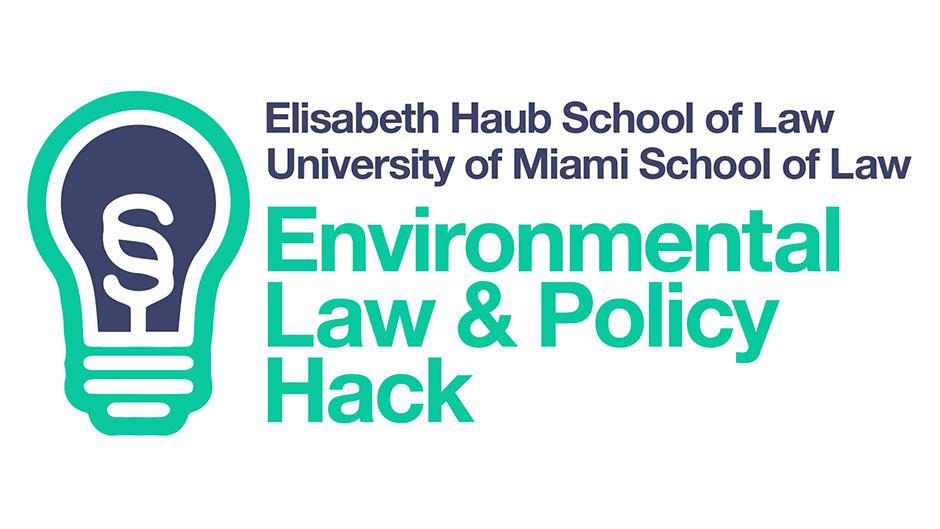The University of Miami School of Law is excited to announce its participation as a co-host for the 2025 Environmental Law and Policy Hack Competition in collaboration with the Elisabeth Haub School of Law at Pace University. The event aims to empower students to engage in innovative legal problem-solving on pressing social and environmental issues.
The deadline for registration is Jan. 1, 2025, with team briefs due Feb. 10, 2025. The final competition will be held March 23, in Miami, Florida.
This year, the competition revolves around the critical question: “How do we capture and monetize the broad value of nature-based solutions and the ecosystem services they provide?” Participants will explore viable financial structures to sustain and scale investments in urban resilience-building infrastructure.
"This competition draws upon the strengths of UM Law as a center of innovative interdisciplinary approaches to the environment," said Jessica Owley, who oversees the Miami Law Environmental Law Program. "Opportunities like this one prepare students for working collaboratively on real-world problems."
Since its inception in 2020, the Environmental Law and Policy Hack has brought together interdisciplinary teams of students to develop creative solutions to real-world challenges. Teams from various disciplines will be tasked with reimagining how capital can flow to resilient urban infrastructure. By exploring policy interventions, regulatory changes, and new institutional frameworks, participants will submit their solutions to the proposed climate problem. Following the review process, three finalist teams will be selected to present their proposals in the final competition.
Miami Law's teams have previously been successful participants in the Hack, where they competed three times and twice won first place and once second place. By co-sponsoring the event, the Law School is taking its involvement to the next level.
The final competition will be held in person in Miami Beach during the University of Miami’s Climate Resilience Institute’s annual symposium. The three finalist teams will present their innovative proposals to a panel of esteemed judges, with support for travel costs provided by the University of Miami School of Law and Haub Law.
The winning team will receive seed funding of $2,000 to help deploy their solution, enabling them to make a tangible impact on environmental law and policy.
Interested teams can find more information and register for the competition by visiting the 2025 Environmental Law and Policy Hack Competition website. Questions may be directed to Anne Olson, environmental program manager, Elisabeth Haub School of Law, at aolson@law.pace.edu.
Read more about Miami Law's environmental law area of study.

